- Home
- Seanan McGuire
Middlegame Page 12
Middlegame Read online
Page 12
Years of practice enable him to look at her without flinching. It’s best never to show fear when dealing with someone like Leigh. She can sense it. She does not forgive it. She would consume him if she thought she could, a snake swallowing the sun. She is his own private Fenris, ready to bring about the end of the world, and he loves and fears her in equal measure.
He could never have come this far without her, and they both know it. Asphodel gave him the education and the map to follow, but he lacks the raw power of someone like Leigh Barrow, who was assembled to channel the strength of a star.
She looks at him and stills, face clouding over like the sky before a storm. “Where is he?”
“He was an excellent piece of work,” he says. “You should be proud.”
Her face darkens further. “You broke him,” she accuses.
“He killed two apprentices nearing their mastery before Daniels took him down, and even in dying, he provided me with the opening I needed. Truly an impressive showing.”
Leigh hesitates, anger over the misuse of her property warring with her pride. Finally, she scowls and says, “There’s been a development with your cuckoos. Two sets on the same day. If that’s not synergy, I don’t know what is.”
Reed’s heart leaps. For the cuckoos to show progress on this day, when a barrier to his progress has fallen before him … “Which ones?”
“The middle pair, Seth and Beth; the youngest, Roger and Dodger.” Her nose wrinkles as she says their names. Leigh has her idiosyncrasies: her hatred of the rhyming names assigned to the cuckoo children is the least of them.
“What happened to the middle subjects?”
“There was an accident.” Her voice remains level, but her eyes are filled with silent fury. “Beth—the control—convinced her family to take a vacation to Disney World. It was a ruse, of course.”
“Of course,” agrees Reed. They were the Earth and Air children. Beth had been placed with a family in Saskatchewan; Seth had been placed with a family in Key West. If she’d convinced her adoptive parents to take her to Florida, it was because the two somehow made contact. They were trying to come together.
“It looks like it really was an accident. Her father was driving the rental car, he was overly tired from the flight, and he lost control of the vehicle. They spun out and smashed up not half a mile from the Happiest Place on Earth.” Leigh smiles, a bitter grimace of an expression that shares as much with joy as it does with cold and righteous fury. “Beth was killed on impact. Seth had an aneurism in the middle of a presentation to his school’s academic review board. They were accusing the poor kid of plagiarism. He was dead before he hit the floor.”
“And the bodies?” The question is sharp enough that even Leigh notices, and calms herself.
“Already on their way here,” she says, a bit more softly. “The girl is pretty messed up, but we should be able to get a decent amount of tissue for analysis. The boy is basically intact, except for the bleed in his brain. At least now we know for sure that if you kill half a pair, you stand a good chance of killing the other half. That’ll make things a lot easier on our snipers in a few years.” She pauses before adding, “Erin’s current condition makes more sense now. She wasn’t as tightly linked to her counterpart. She’ll likely survive.”
“You said there was news about the youngest pair as well.”
“Roger Middleton and Dodger Cheswich. Yes. They’ve restored contact.”
Silence falls. It’s not the soft, pleasant silence that stretches between friends, or even the wire-tight silence that stretches between enemies. This is a silence with teeth and claws, ready to strike and destroy its prey. This silence hurts.
Slowly, Reed asks, “What do you mean, they’ve restored contact?”
“The Cheswich girl has been doing that chess tournament thing. It had a stop in Boston. The Middleton boy wound up going to see her play. They were seen speaking after the game. She looked upset.”
“And him?”
“He looked … You ever seen the look on a kid’s face right after they’ve seen their puppy reduced to beef stew in the middle of the highway? Like they can’t process what’s happening, so they’re going to be sort of shell-shocked and sad until someone tells them how they’re supposed to feel? He looked like that. He looked just this side of busted.” Leigh shakes her head. “He’s their control, and he can’t even handle a little accidental encounter with his imaginary friend. We should scrub them both and start over with something hardier. Something we raise under lab conditions. My subjects—”
“Are not under discussion,” says Reed sharply. “Was that all? Did they arrange to meet again? Were they seen in one another’s company?”
“No. The girl walked away. The boy left with another girl—pretty thing, completely natural, not tailored at all; we could modify her to suit our needs, if we started now—who didn’t look happy about him speaking to Miss Cheswich. Teenage boys being what they are, the situation has probably already sorted itself out.”
“You’re talking about the only pair of nestmates to have established independent connection without physical contact,” says Reed. “They found each other through sheer loneliness and need. Do you know what a huge leap forward that is?”
“I don’t care what kind of leap forward it is,” says Leigh. “It wasn’t part of the project outline. It isn’t safe, it isn’t right, and it isn’t necessary to the successful manifestation of the Doctrine. This isn’t something we planned for. We don’t control it. We should be treating them as rogues. We should be reacting to this encounter with full censure.”
There’s no question of what “full censure” would represent: with Leigh, there is never any chance of half-measures. She would take their child cuckoos apart if he allowed it, reducing them to component atoms, hunting the place where lead becomes gold, where flesh becomes cosmic principle of the universe. Reed looks at her coolly. He will not tell her no, not in so many words, because Leigh is rarely fully wrong; she understands the deep threads of the project as few others do, himself included. The scales of human mercy do not cloud her eyes.
He will also not accede to her requests. They’ve spent too much time already, devoted too many resources, to cut themselves short when they are so blissfully close to victory. Unless the project has become an active danger, it will continue. The road to the Impossible City has always welcomed accidental travelers. Sometimes he suspects that’s the only way to truly get there at all.
“How are they embracing their aspects?”
Leigh looks at him with sullen hatred in her eyes, and does not speak.
Reed sighs. Sometimes it’s sadly necessary to remind her of what she is, what he is, and why she is here. “You could be replaced, Leigh. It would be a dire loss, and I’d miss you, but you could be replaced.”
“The boy speaks seven languages, and he’s been asking for more lessons,” says Leigh, eyes still burning hate. “His soft palate has remained flexible; there don’t seem to be any sounds he can’t make. He hasn’t realized yet how unusual that is, or what a freak of nature it makes him. Maybe he never will. It depends on how long he remains operational. The girl plays chess at a grandmaster level. She could make a career of it, but she doesn’t care enough; she’d rather be doing pure mathematics. Probably will, once her parents stop pushing her to have a normal life. As if that were ever going to be possible.” There’s a venom in Leigh’s voice that can’t be explained by any of the things she’s said, something deep and cold and brutally cruel.
Reed says nothing. He looks at her, and he waits.
The wait is not a long one. “They’re not good work,” she finally explodes. “The boy could be a king by now—he can make anyone do anything by snapping his fingers and telling them what he wants, and what does he do? Academic decathlon, and a girlfriend, and reading up on linguistic dead ends. We’re supposed to be making tools, not scholars afraid of their own shadows. And the girl! She’s socially maladjusted, she’s withdrawn and
dysfunctional, and she hasn’t laughed since we broke contact between the two of them. We need to scrub this generation and start over.”
“It was your idea to sever that initial contact, Leigh. You were the one who used Galileo’s planetary charts to prove that intersecting their orbits too early would be detrimental to their development. I listened to you, because you’ve been right before. Now you’re telling me severing that contact may have damaged them, and that this justifies canceling their portion of the project. Which is it? Did we serve the Doctrine or do it irreparable harm when we untangled them from one another?”
“I said to keep them apart, not to send them out into the world. If we damaged the Doctrine’s manifestation, it was because they weren’t properly made,” Leigh says. “If a vase shatters when you cool it, it’s not because it wasn’t meant to be cooled. You must cool what you bake. But sometimes there are flaws in the making, places where the clay fails to properly bond. It’s not my fault if they’re bad clay. It’s not my fault if they can’t hold when they’re fired.”
“Perhaps not, but I think you’re too swift to dismiss them as poorly made,” says Reed. He sees the reasons for her objection now, sees them more clearly than she ever will. Leigh relishes destruction, the point where one thing can be broken down to make way for the next, because her true devotion is to perfection, the line past which nothing can be improved. To her, their cuckoos have been a spiral of increasing elegance, but they are not yet perfect.
“I think you’re too swift to embrace them as the ideal.”
“What would you have me do?”
“Start again. We know more now; we have a better idea of the shapes we need, the angles we desire. We can make them better.”
Her point is valid. There is a compromise to be reached. “I’ll approve your creation of another generation of cuckoos to race for the manifestation, but you must agree to stop calling for the dissolution of this pair. I want to see what they can accomplish if left to their own devices. They’re developing into something new. The Doctrine, when it manifests, will be something new.” It will also be the oldest thing in the world, the note which, when sounded without obstruction or acoustic manipulation, creates reality. It’s impossible to say whether this pair of cuckoos is on their way to manifesting, for these are uncharted waters. There’s no map. There’s no compass. There is only the project, stretching out ahead of them, unchanging, unchangeable.
This is alchemy of the type the masters could only dream of. Paracelsus, Pythagoras, Baker—not one of them has touched these vaunted heights, or come this close to finally fully realizing their dreams.
Leigh looks at him for a moment more before she bows her head and agrees, “I will leave them.”
“Good.” He leans forward, kisses her forehead, imagines he can hear the rustle of dead leaves and feathers inside the ivory cage of her skeleton. She is dangerous, this construct of dead women and living vermin. She is bright and brilliant, and she will kill him one day, if he isn’t careful. If he allows it. “Remember the auguries. Have faith.”
“I always have,” she says.
“Now get your people. I want that mess upstairs gone before the plane takes off.” He turns and walks away.
* * *
Patience is a virtue to Leigh Barrow. She was born in stillness; she will die in motion. Everything between those points is the tension of the coiled spring, the held breath, the knife in the process of being drawn. She holds herself patient and cold as Reed—her keeper, her lover, her master, and her rival, all bound in a single imperfect human skin—leaves her behind.
Only when he rounds the corner and is gone does she move, potential converting into action as she whips around, balancing on the balls of her feet, and runs, cat-light, down the darkened hallway. She doesn’t bother turning the lights on. Even were her night vision poorer than it is, that wouldn’t matter; she knows every curve of this hall. She’s walked it every day for years. She needs no visual cues to tell her where she’s going, and wouldn’t know what to do with them if they were provided.
Leigh is aware of the contradiction inherent in her existence. She is a human being, a scientist; she remembers half a dozen PhD programs, and another half-dozen disciplines on top of those. Her bones were stolen from the graves and deathbeds of thirteen brilliant women—and if those deathbeds were made by a long-dead alchemist, rather than by natural selection, she has no sympathy for them. Without their deaths, her birth would have been impossible. She is a palimpsest girl, a denizen of the Up-and-Under called into the light and brightness of the modern world, and if the women who make her up didn’t want to die, they should have been more careful. They should have barred their doors and locked their windows, not left them open for a shadow to slip through like a thief in the night, hands full of knives and heart full of larceny. They should have known that what they possessed, the bright, brilliant nature of their minds, was more precious than gold, more transmutable than lead. They should have realized precautions were required.
For her, life is the lab and the lab is life. The lab is where she awoke, confused, filled with the shrieking souls of countless dead. The wings of crows beat in her ribcage, prisoned in the fleshy confines of her heart; sometimes she feels their feathers brushing against her bones, which are a mixture of human, caprine, and whalebone scrimshaw, carved so beautifully that she sometimes thinks it a pity she needs skin. She would be so much more attractive as a walking specter of tendon and bone, exposing her creator’s artwork to the world.
This portion of the lab is her territory before anyone else’s; even Reed is cautious about walking down her halls. There’s never any way of knowing what terrible things she has cooking in her private rooms, or how they might react to someone exposing them to the light. Reed is her master: she won’t directly disobey his orders. Those horrible cuckoo children, with their twee names and their calf’s eyes, will be allowed to live their petty little lives, at least for now. At least until he sees the wisdom of doing things her way.
Someday he’ll understand why she hates them so, all the members of their terrible generation, raised outside the lab and under the all-seeing eye of the unforgiving sun. Someday he’ll see that she was right all along. Until then …
She opens the door to her private lab, revealing a white room with bright lights set into the ceiling. Erin is strapped to a chair, writhing and wailing, while several technicians stand around her with solemn faces, making notes.
“Outside,” snaps Leigh. “Reed’s made a mess by the door. Clean it up.”
They go without complaint. They know their place.
Quickly, she crosses to the girl and kneels, reaching up to touch her face. Erin stills. Even in the face of a pain she can’t understand, she knows when danger is at hand.
“Hello, sweetheart,” says Leigh, and smiles. “It’s time.”
Breakdown
TIMELINE: 8:15 EST, SEPTEMBER 5, 2003 (THREE MORE YEARS).
Cambridge is beautiful in September. The weather isn’t always accommodating—some years it seems to rain from the beginning of the month all the way to the end, or to trip over itself in its hurry to present the first iced-over sidewalks—but the city is glorious in the fall. Roger leans against an old maple tree at the edge of campus, smoking a cigarette and watching underclassmen stream through the doors, smirking at the chime of the warning bell. There are certain perks that come with being both a senior and one of the smartest kids in school. Among them is starting the day with a free study period. As long as he’s on school property, he’s neither truant nor tardy, and can do what he likes for the first hour of his day.
Most of the kids in his class chose the end of the day for their free period, wanting to get out of school as fast as they can. He understands that. But he has things to do with his morning—essential things, that can’t be moved—and so he went with the beginning. Besides, Alison is in his seventh-period American History class, having chosen a full course load for her senior year, and he
likes to have the excuse to spend the time with her. They’re looking at different colleges, and both of them know their relationship, mutually satisfying as it has been, won’t survive the end of high school. They’re not in love. If they were once, it faded into friendship and physical attraction long ago. That’s been more than enough for both of them.
Roger takes one more drag on his cigarette before dropping it to the dirt and grinding it beneath his heel. Then, calmly, he closes his eyes. 8:20 here is 5:20 in California, and Dodger will be getting out of bed in three … two …
“Good morning, asshole.” She sounds groggy. She always does when she wakes up. Neither of them is good about going to bed at a reasonable hour, but he at least tries to get five hours a night, if only for the sake of his ability to conjugate irregular verb tenses. When last he checked, Dodger was running at three hours, tops. He’s not sure how much longer she can do that. He’s sure nothing he says is going to make her stop.
They fight more now than they did when they were kids. Part of it is that they’re different people: more rigid, more adult, less willing to accept everything as inevitable and reasonable just because someone else says it’s so. Part of it is that she’s never really forgiven him for cutting off contact the way he did. She says she has, and he knows she’s lying, and she knows he knows, and neither of them does anything about it, because neither of them is sure what there is to do. They have the kind of connection that looks good on paper, but it doesn’t fix anything: they’re not telepaths, he can’t read her mind and figure out the exact right things to say to make her understand that he’s sorry, he’ll always be sorry, he’d change it if he could. She can’t see his thoughts. All they can do is worm into one another’s heads, like the world’s least explicable telephone line.
(At least they can shut each other out now. They can bar the mental doors and throw the mental locks and have some sense of privacy. They couldn’t do that when they were kids. It still doesn’t work if they don’t make an effort. It’s not enough to be unreceptive. They have to be actively opposed, and that’s exhausting. They don’t feel each other the way they used to, either. He doesn’t feel her exhaustion. She doesn’t feel him nod. Something has been lost in the long gulf of their separation, and he doesn’t know whether he wants it back or not.)

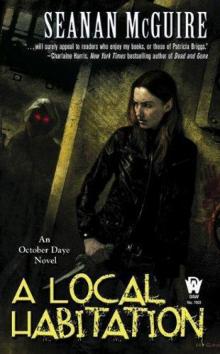 A Local Habitation
A Local Habitation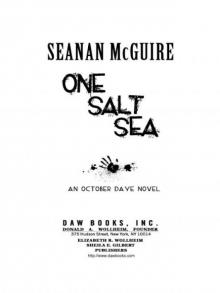 One Salt Sea
One Salt Sea Beneath the Sugar Sky
Beneath the Sugar Sky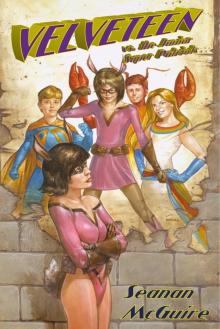 Velveteen vs. The Junior Super Patriots
Velveteen vs. The Junior Super Patriots The Girl in the Green Silk Gown
The Girl in the Green Silk Gown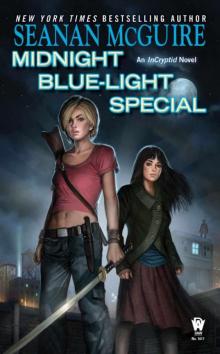 Midnight Blue-Light Special
Midnight Blue-Light Special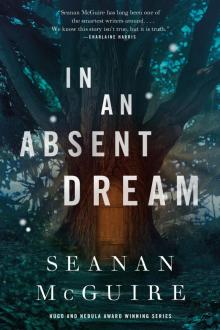 In an Absent Dream
In an Absent Dream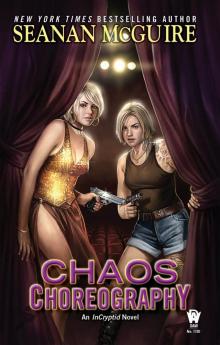 Chaos Choreography
Chaos Choreography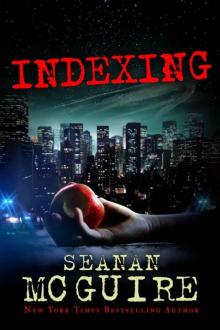 Indexing
Indexing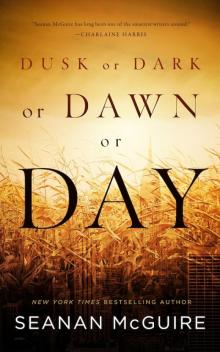 Dusk or Dark or Dawn or Day
Dusk or Dark or Dawn or Day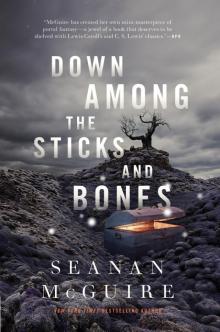 Down Among the Sticks and Bones
Down Among the Sticks and Bones The Razor's Edge
The Razor's Edge Midway Relics and Dying Breeds
Midway Relics and Dying Breeds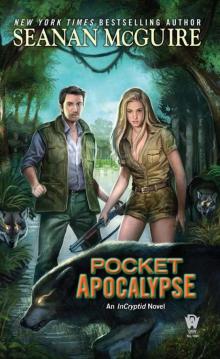 Pocket Apocalypse
Pocket Apocalypse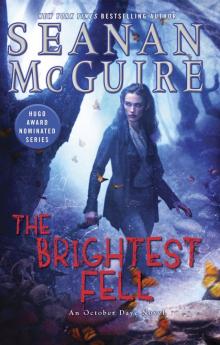 The Brightest Fell
The Brightest Fell Discount Armageddon
Discount Armageddon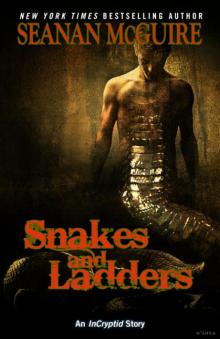 Snakes and Ladders
Snakes and Ladders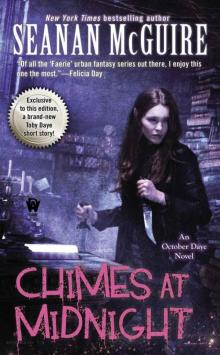 Chimes at Midnight
Chimes at Midnight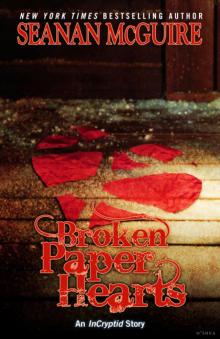 Broken Paper Hearts
Broken Paper Hearts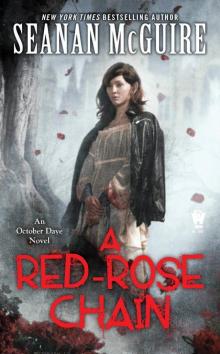 A Red-Rose Chain
A Red-Rose Chain Married in Green
Married in Green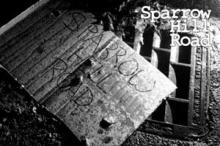 Sparrow Hill Road 2010 By Seanan
Sparrow Hill Road 2010 By Seanan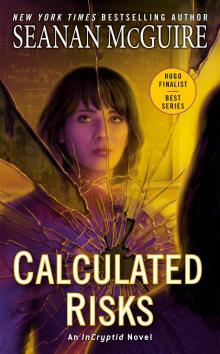 Calculated Risks
Calculated Risks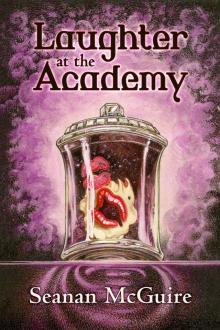 Laughter at the Academy
Laughter at the Academy The Winter Long
The Winter Long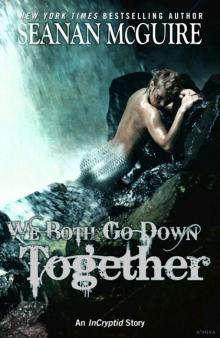 We Both Go Down Together
We Both Go Down Together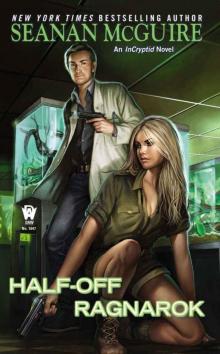 Half-Off Ragnarok
Half-Off Ragnarok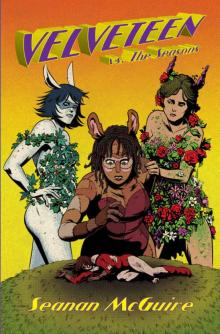 Velveteen vs. The Seasons
Velveteen vs. The Seasons Boneyard
Boneyard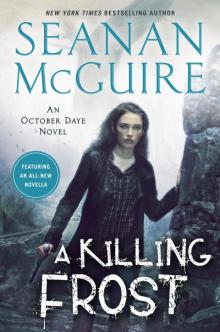 A Killing Frost
A Killing Frost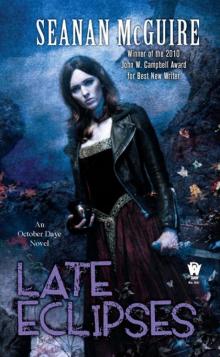 Late Eclipses
Late Eclipses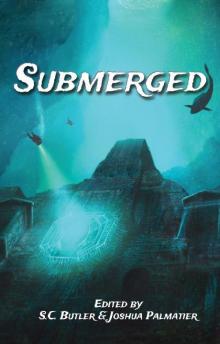 Submerged
Submerged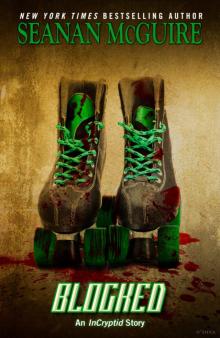 Blocked
Blocked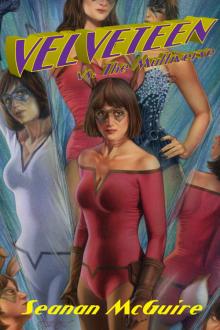 Velveteen vs. The Multiverse
Velveteen vs. The Multiverse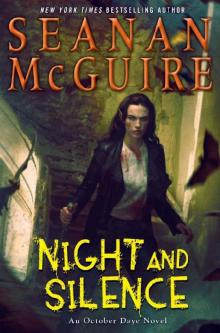 Night and Silence
Night and Silence The Unkindest Tide (October Daye)
The Unkindest Tide (October Daye)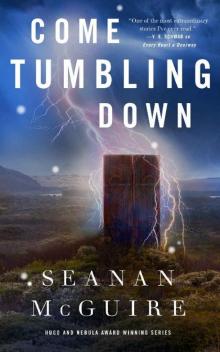 Come Tumbling Down (Wayward Children)
Come Tumbling Down (Wayward Children)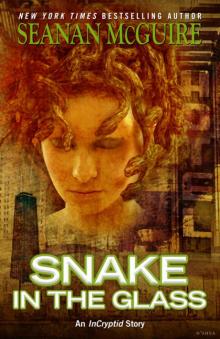 Snake in the Glass
Snake in the Glass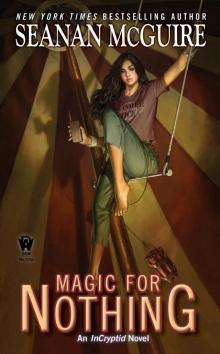 Magic for Nothing
Magic for Nothing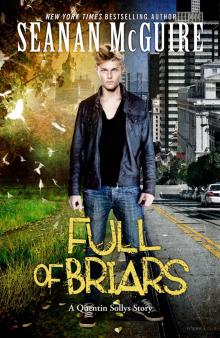 Full of Briars
Full of Briars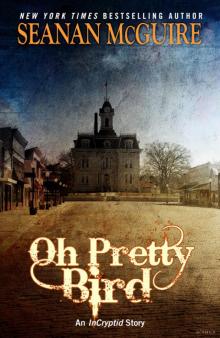 Oh Pretty Bird
Oh Pretty Bird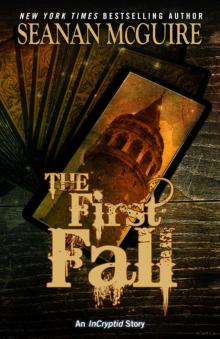 The First Fall
The First Fall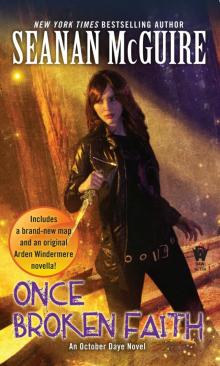 Once Broken Faith
Once Broken Faith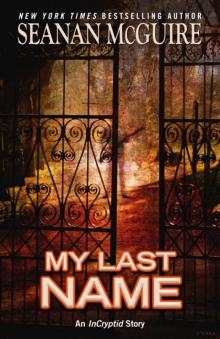 My Last Name
My Last Name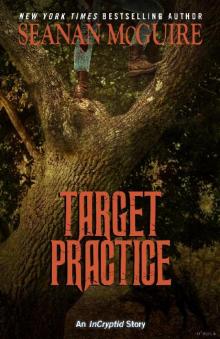 Target Practice
Target Practice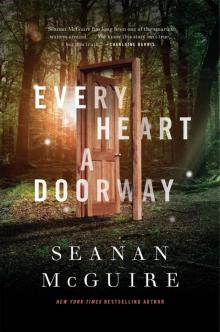 Wayward Children 01 - Every Heart a Doorway
Wayward Children 01 - Every Heart a Doorway Sparrow Hill Road
Sparrow Hill Road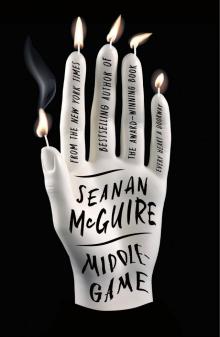 Middlegame
Middlegame Juice Like Wounds
Juice Like Wounds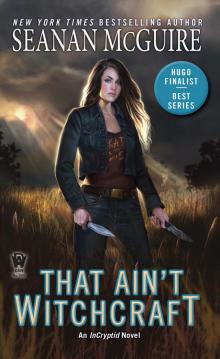 That Ain't Witchcraft
That Ain't Witchcraft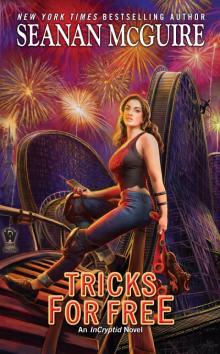 Tricks for Free
Tricks for Free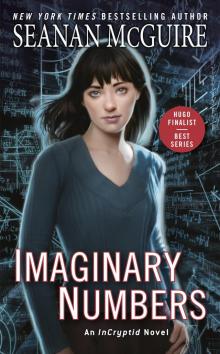 Imaginary Numbers
Imaginary Numbers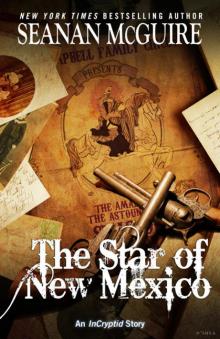 The Star of New Mexico
The Star of New Mexico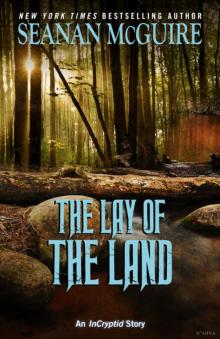 Lay of the Land
Lay of the Land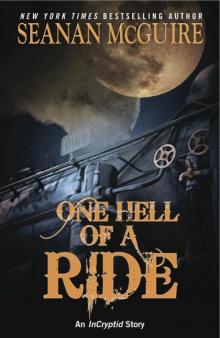 One Hell of a Ride
One Hell of a Ride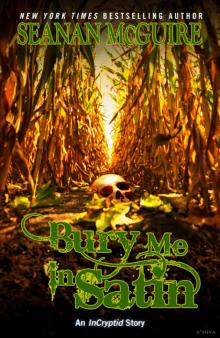 Bury Me in Satin
Bury Me in Satin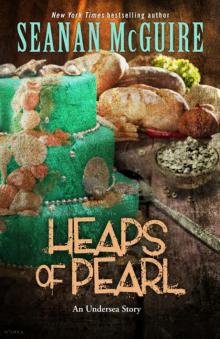 Heaps of Pearl
Heaps of Pearl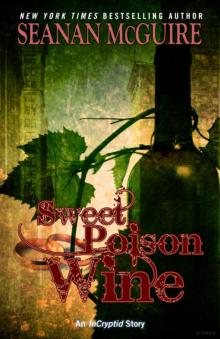 Sweet Poison Wine
Sweet Poison Wine When Sorrows Come
When Sorrows Come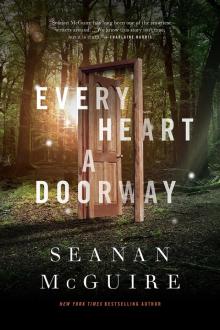 Every Heart a Doorway
Every Heart a Doorway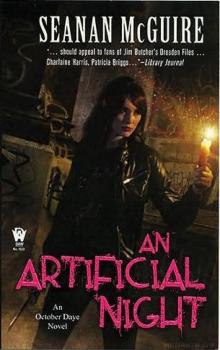 An Artificial Night - BK 3
An Artificial Night - BK 3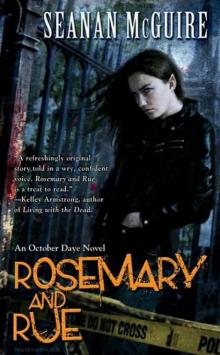 Rosemary and Rue
Rosemary and Rue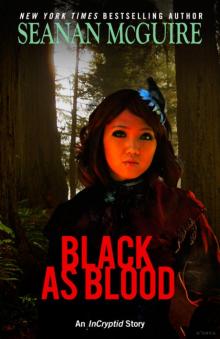 Black as Blood
Black as Blood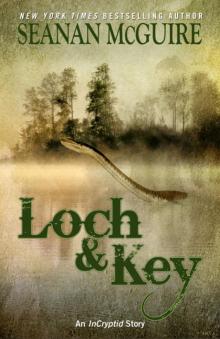 Loch and Key
Loch and Key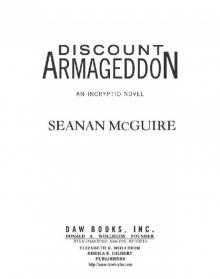 Discount Armageddon: An Incryptid Novel
Discount Armageddon: An Incryptid Novel The Unkindest Tide
The Unkindest Tide Ashes of Honor od-6
Ashes of Honor od-6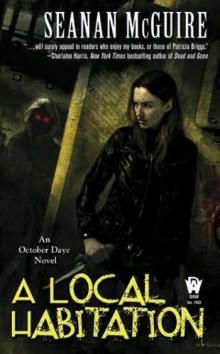 A Local Habitation od-2
A Local Habitation od-2 Waking Up in Vegas
Waking Up in Vegas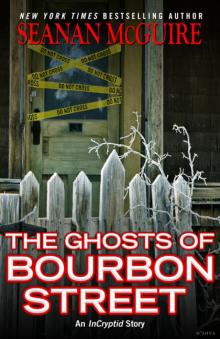 The Ghosts of Bourbon Street
The Ghosts of Bourbon Street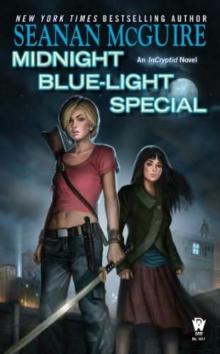 Midnight Blue-Light Special i-2
Midnight Blue-Light Special i-2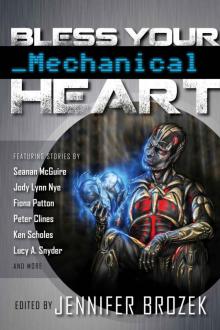 Bless Your Mechanical Heart
Bless Your Mechanical Heart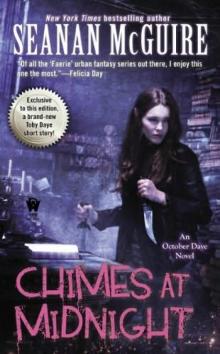 Chimes at Midnight od-7
Chimes at Midnight od-7 The Way Home
The Way Home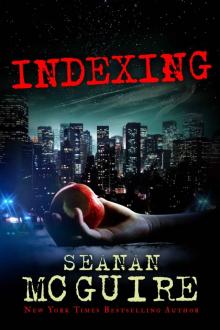 Indexing (Kindle Serial)
Indexing (Kindle Serial)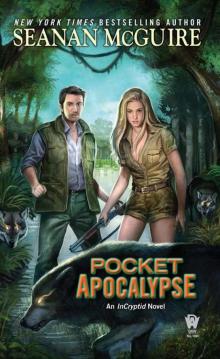 Pocket Apocalypse: InCryptid, Book Four
Pocket Apocalypse: InCryptid, Book Four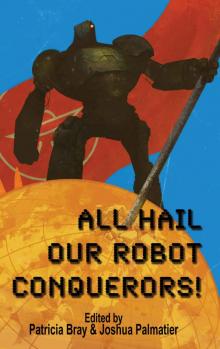 All Hail Our Robot Conquerors!
All Hail Our Robot Conquerors!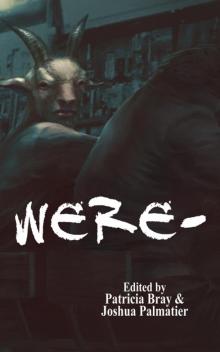 Were-
Were-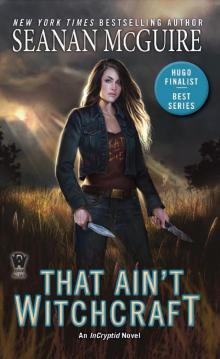 That Ain't Witchcraft (InCryptid #8)
That Ain't Witchcraft (InCryptid #8)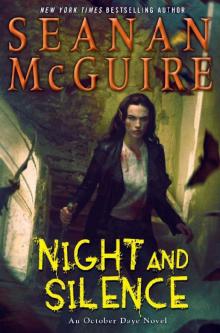 Night and Silence (October Daye)
Night and Silence (October Daye)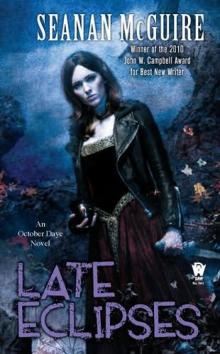 Late Eclipses od-4
Late Eclipses od-4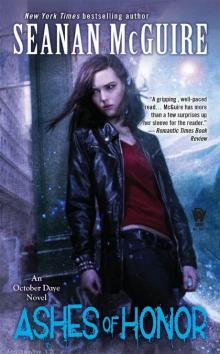 Ashes of Honor: An October Daye Novel
Ashes of Honor: An October Daye Novel Midway Relics and Dying Breeds: A Tor.Com Original
Midway Relics and Dying Breeds: A Tor.Com Original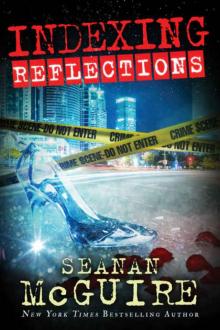 Indexing: Reflections (Kindle Serials) (Indexing Series Book 2)
Indexing: Reflections (Kindle Serials) (Indexing Series Book 2)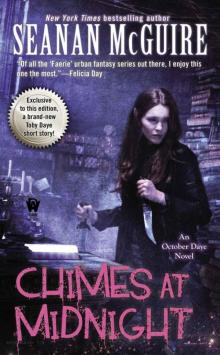 Chimes at Midnight: An October Daye Novel
Chimes at Midnight: An October Daye Novel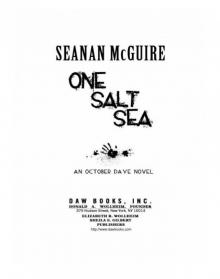 One Salt Sea: An October Daye Novel
One Salt Sea: An October Daye Novel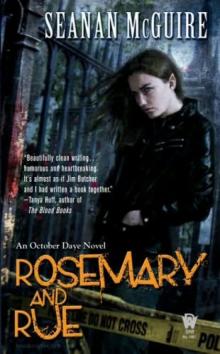 Rosemary and Rue od-1
Rosemary and Rue od-1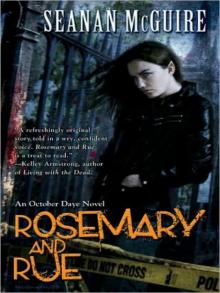 Rosemary and Rue: An October Daye Novel
Rosemary and Rue: An October Daye Novel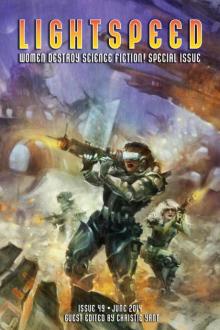 Lightspeed Magazine Issue 49
Lightspeed Magazine Issue 49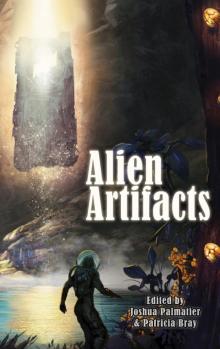 Alien Artifacts
Alien Artifacts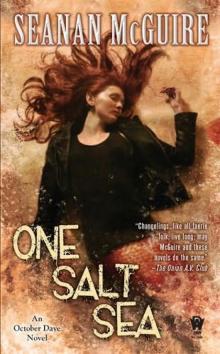 One Salt Sea od-5
One Salt Sea od-5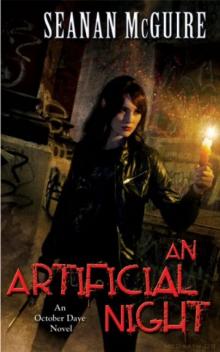 An Artificial Night od-3
An Artificial Night od-3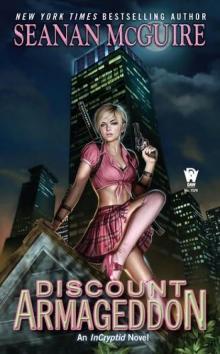 Discount Armageddon i-1
Discount Armageddon i-1